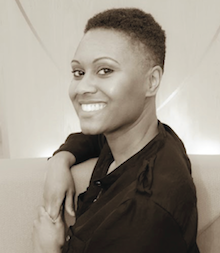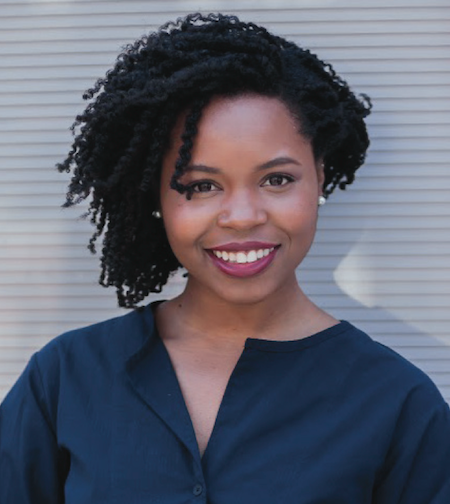April 24, 2015

Angela Fitzgerald
For our last installment of introductions, I had the pleasure of interviewing the newest member of the BGGM crew! Ladies and gentlemen, meet Ashley Robertson.

Ashley Robertson
Angela Fitzgerald: To start, Ashley can you me a little about yourself?
Ashley Robertson: I’m originally from Maryland and moved to Wisconsin for work as a redevelopment planner. I work with cities in the Midwest and the Great Lake states as a consultant to redevelopment projects for regional and economic positioning initiatives. A lot of these communities are former manufacturing communities where manufacturing — specifically auto manufacturing — was the lifeblood of the city. In these communities, you could make a living without having a degree. When there was decline in this market, some places lost a lot of jobs. Due to lack of jobs, people left and took their tax dollars with them. This impacts money available for education and infrastructure in the community. My work centers on helping communities facing these types of challenges to reposition themselves economically. It’s interesting work! I’m excited to get to work with these communities, some of whom my firm has been working with for 20 years.
AF: That does sound like really interesting work and in an area where you can make an impact! Speaking of economic issues more personally, what are some goals that you are currently working towards in the area of finances?
AR: Getting rid of debt! I have student loans. They started out in the $20,000 range but I have taken that down to about $9,000 and expect to be done by July or August. My goal is to try to stay focused and not fall off track. I’m also focusing on building a better emergency fund and savings account and saving for my retirement. Right now, all of my money is going towards paying down my student loans as fast as possible, but I would like to stack away as much as possible while I still have time to save.
AF: I am rooting for you and am glad to hear that you’re nearing your goal of paying off your debt. That is a difficult goal to accomplish. As a fellow Brown/Black girl, what are some common personal finance challenges that you think other Brown girls face?
AR: Sometimes financial literacy is not institutional knowledge — something that we've all had and retained for generations. A lot of what I've learned, I’m teaching to my parents today. They're learning from me because no one ever taught or exposed them to it. Fortunately, I don't have a ton of credit card debt because of what my parents told me about the mistakes they made. But I have a steeper learning curve when it comes to saving, investing and retirement. I’ve worked since I was 15-years-old, but never got into the habit of saving. These are areas that I'm understanding the value of now and hope to pass onto future generations. But I think we do not always have that generational knowledge about building wealth because it's something we did not always have access to. Policies were in place to make sure that we couldn't own homes or businesses. These were equity and wealth building tools that we were denied access to as people of color, specifically African Americans. We're building something from scratch, in a way. Fortunately, in this age, the information is out there — we just have to grab a hold of that information and learn how to apply it to our individual and collective situations. I think the learning curve is there for all of us.
AF: You better preach Ashley! But in all seriousness, a lot of what you’ve mentioned was the basis for why BGGM came to be. We want to understand historical and current contextual factors that contribute to economic disparities, while also holding individuals responsible for their money choices. Related to these goals, what would you like to see BGGM do in the next year?
AR: It would be great if we could make financial literacy accessible and rooted in the reality of our community. While a lot of us have student loan debt, those resulting degrees should increase our earning potential compared to if we did not have a degree. So while I have debt, my situation is significantly less permanent than someone with limited upward mobility. My reality is not always indicative of the norm in our communities. I have access to higher-paying jobs to help pay down my loans. Others may be dealing with more debt than me and stuck in low wage jobs with less prospects for career advancement. It’ important to not get into debt, but I understand that sometimes your situation makes it almost impossible not to. Financial literacy should be adaptable to multiple circumstances because getting out of debt is not a one size fits approach.
AF: I so agree! You have given us much food for thought and I appreciate your openness and honesty. Switching gears a bit, what is your favorite 90s Hip-Hop song?
AR: LOL! I honestly didn't listen to Hip-Hop in the 90s. I grew up in the middle of nowhere and was limited to gospel for a lot of my youth. Maybe something by Destiny’s Child.
AF: I can relate – I had to sneak to listen to secular music. Well, we’ve come to the end of our chat. Do you have any closing remarks?
AR: I’m interested to know if there are other models out there by other people and groups who have approached this type of initiative. I know it's controversial to talk about money and specifically racial and gender specific money issues. But it's reality and the only way we'll ever be able to stop talking about these issues is to suck it up and forge ahead towards a solution.
Angela Fitzgerald is a researcher/program evaluator by day and crime fighter by night. And by "crime", she means the perceived inability to turn dreams into reality. She can be reached at browngirlgreenmoney@gmail.com if you'd like to share your money story, chop it over life goals or all things Shonda Rhimes.


